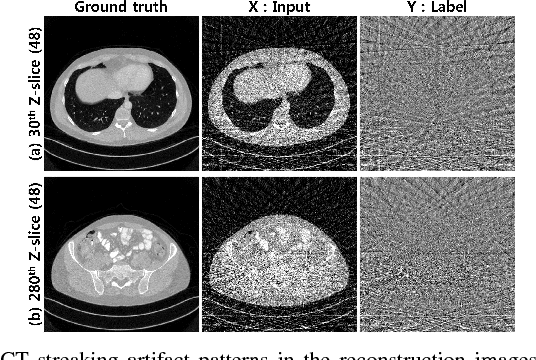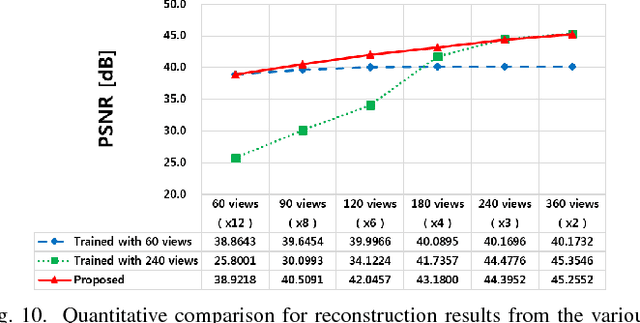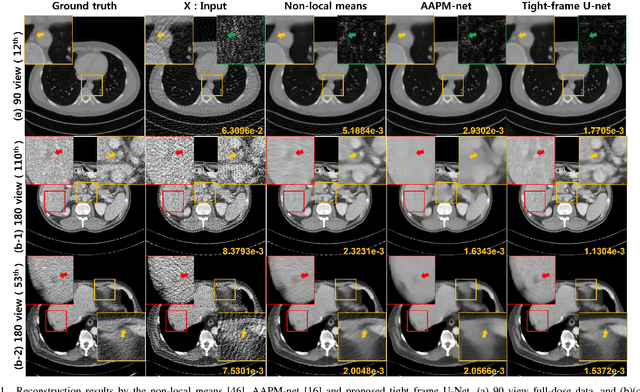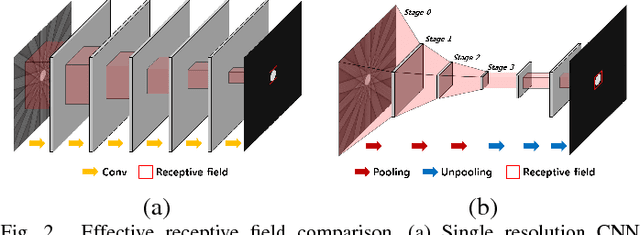Framing U-Net via Deep Convolutional Framelets: Application to Sparse-view CT
Paper and Code
Mar 28, 2018



X-ray computed tomography (CT) using sparse projection views is a recent approach to reduce the radiation dose. However, due to the insufficient projection views, an analytic reconstruction approach using the filtered back projection (FBP) produces severe streaking artifacts. Recently, deep learning approaches using large receptive field neural networks such as U-Net have demonstrated impressive performance for sparse- view CT reconstruction. However, theoretical justification is still lacking. Inspired by the recent theory of deep convolutional framelets, the main goal of this paper is, therefore, to reveal the limitation of U-Net and propose new multi-resolution deep learning schemes. In particular, we show that the alternative U- Net variants such as dual frame and the tight frame U-Nets satisfy the so-called frame condition which make them better for effective recovery of high frequency edges in sparse view- CT. Using extensive experiments with real patient data set, we demonstrate that the new network architectures provide better reconstruction performance.
 Add to Chrome
Add to Chrome Add to Firefox
Add to Firefox Add to Edge
Add to Edge